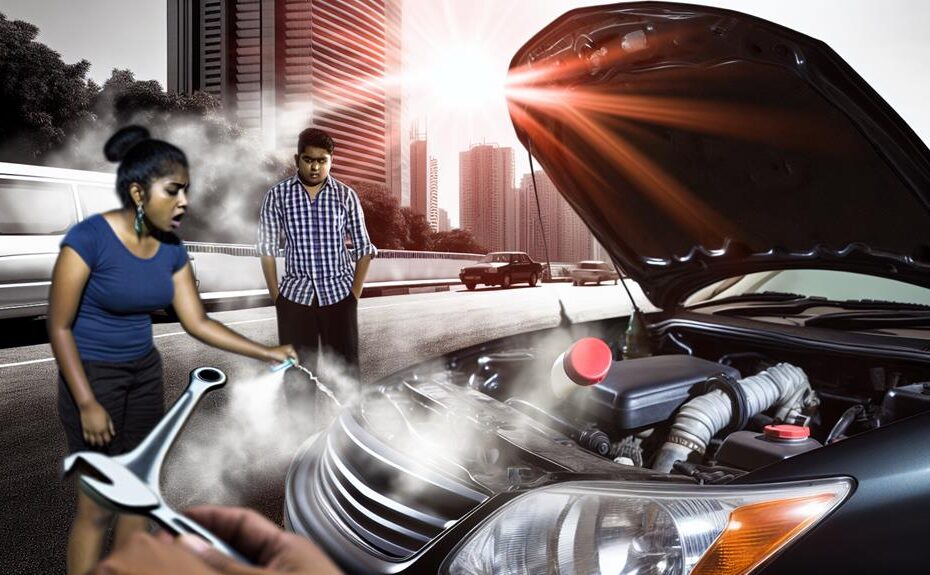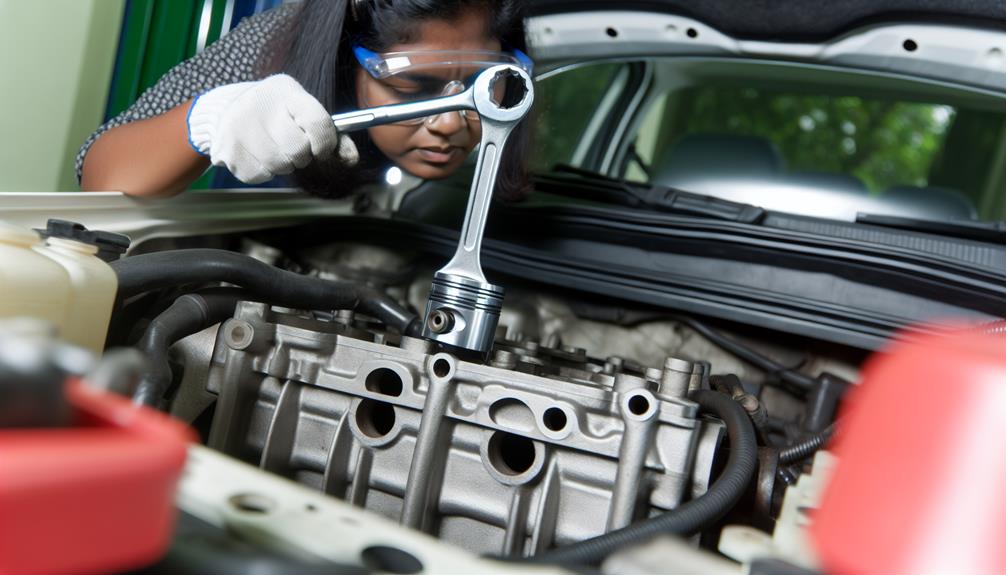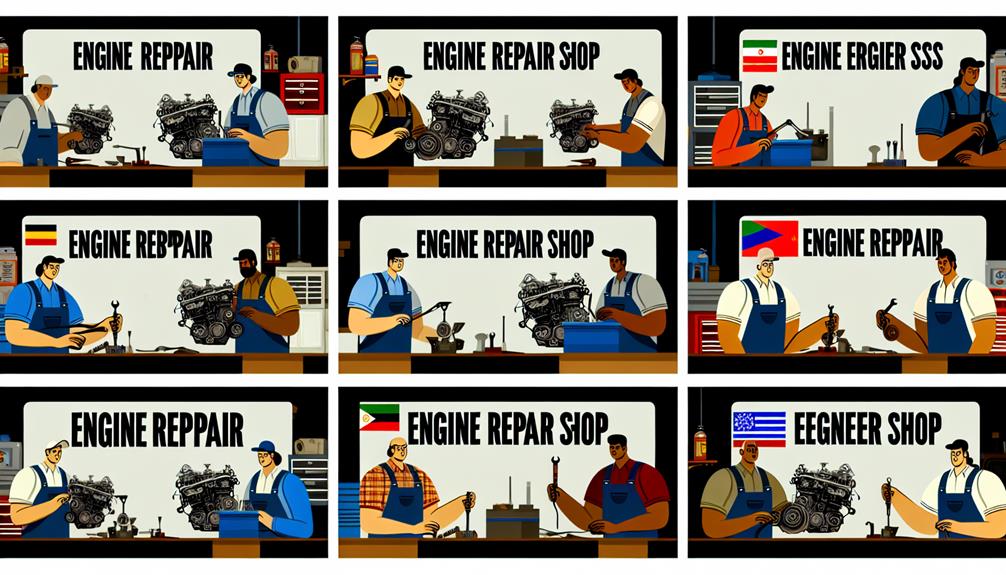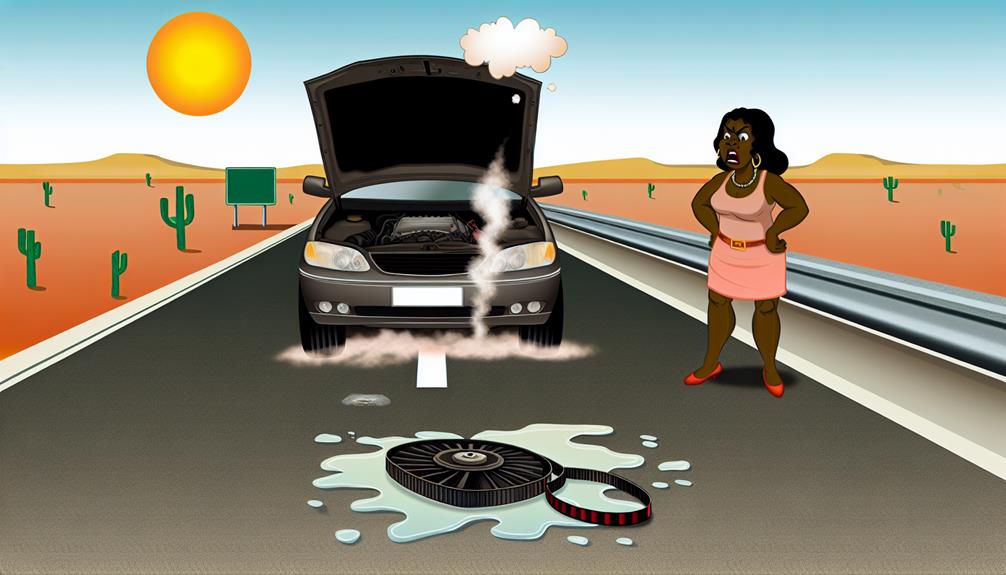They say, 'An ounce of prevention is worth a pound of cure.' Well, when it comes to your engine overheating, this adage couldn't be more true. The last thing you want is to be stranded on the side of the road with smoke billowing out from under your hood.
But fear not, because with these 6 simple tips, you can prevent engine overheating and ensure a smooth and worry-free ride.
So, if you want to keep your engine running cool and avoid costly repairs, buckle up and get ready to learn the secrets to keeping your temperature gauge in check.
Key Takeaways
- Regular maintenance is crucial for preventing engine overheating and addressing potential issues early.
- Checking and topping up coolant levels regularly is necessary for proper engine cooling.
- Inspecting and cleaning the radiator and cooling system helps remove debris or blockages that hinder heat dissipation.
- Monitoring coolant quality and performing a coolant flush if necessary can ensure optimal coolant performance and prevent overheating.
Causes of Engine Overheating
There are several common causes of engine overheating that can be attributed to various factors. Understanding these causes and their associated symptoms is crucial for preventing engine damage and ensuring optimal performance.
One of the most common causes of engine overheating is a malfunctioning thermostat. The thermostat regulates the flow of coolant through the engine, maintaining a consistent temperature. If the thermostat fails to open or close properly, it can lead to overheating. Common symptoms of a faulty thermostat include a constantly high or fluctuating temperature gauge, coolant leaks, and reduced heater performance.
Another common cause is a coolant leak. Coolant plays a vital role in dissipating heat from the engine. A leak in the cooling system can result in a loss of coolant, leading to overheating. Look out for signs such as low coolant levels, visible coolant puddles under the vehicle, or a sweet smell coming from the engine.
A malfunctioning radiator fan can also cause engine overheating. The fan helps to cool the radiator by blowing air over the fins, dissipating heat. If the fan fails to operate correctly, the engine may overheat. You may notice the temperature gauge rising rapidly in traffic or at idle, accompanied by a lack of airflow from the vents.
Importance of Regular Maintenance
Regular maintenance is crucial for preventing engine overheating and ensuring optimal performance.
By adhering to a regular maintenance schedule, you can identify and address potential issues before they escalate into major problems.
This includes routine tasks such as checking coolant levels, inspecting hoses and belts, and changing the oil and filters.
Regular Maintenance Benefits
Performing regular maintenance on your engine is crucial for ensuring its optimal performance and preventing overheating issues. Regular engine checks and preventative maintenance have numerous benefits that contribute to the longevity and efficiency of your engine. By following a regular maintenance schedule, you can detect potential issues early on and address them before they become major problems. This not only saves you money on costly repairs but also minimizes the risk of unexpected breakdowns and inconveniences. Additionally, regular maintenance helps to improve fuel efficiency, reduce emissions, and enhance overall engine performance. By keeping your engine in top shape, you can enjoy a smoother and more reliable driving experience. Check out the table below for a summary of the benefits of regular maintenance:
| Benefits of Regular Maintenance |
|---|
| Early detection of issues |
| Cost savings on repairs |
| Minimized breakdowns |
| Improved fuel efficiency |
| Enhanced engine performance |
Preventative Engine Care
To ensure the optimal performance and longevity of your engine, it's essential to prioritize preventative engine care through regular maintenance. By following these simple steps, you can prevent overheating accidents and keep your engine running smoothly:
- Regularly check and top up coolant levels to ensure proper engine cooling.
- Inspect and clean the radiator and cooling system to remove any debris or blockages.
- Replace old or worn-out hoses and belts that may contribute to engine overheating.
- Schedule regular tune-ups and inspections to identify any potential issues before they cause major problems.
Checking Coolant Levels and Quality
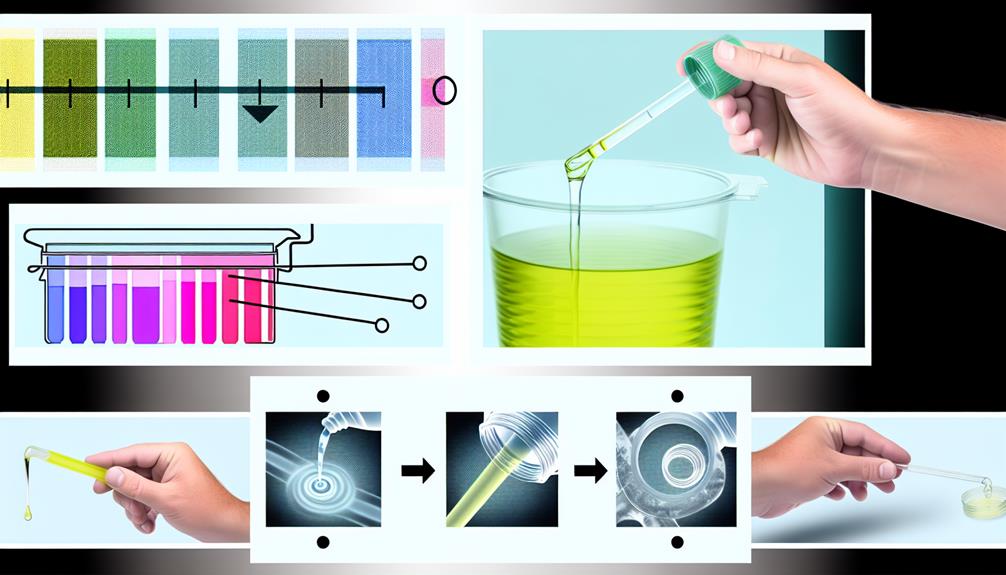
To ensure optimal engine performance and prevent overheating, it is crucial to regularly check the levels and quality of your coolant. Coolant maintenance is a vital part of your vehicle's overall health and can help prevent costly repairs down the line. By monitoring your coolant levels and quality, you can identify potential issues early on and take necessary action to avoid engine overheating.
One way to check your coolant levels is by referring to your vehicle's owner manual for specific instructions. Typically, you would open the hood and locate the coolant reservoir. The coolant level should be between the minimum and maximum marks on the reservoir. If it's below the minimum mark, it's time to top it up with a mixture of coolant and distilled water.
In addition to monitoring the coolant levels, it's equally important to assess the quality of the coolant. Over time, coolant can become contaminated with dirt, debris, or rust, which can hinder its effectiveness. To check the quality, you can use a coolant tester or take your vehicle to a professional mechanic who can perform a coolant flush if necessary.
Regularly checking and maintaining your coolant levels and quality is a simple yet effective way to prevent engine overheating and keep your vehicle running smoothly. Don't overlook this important aspect of your vehicle's maintenance, and you'll enjoy a liberated driving experience free from the worry of engine overheating.
| Coolant Levels | Quality Assessment |
|---|---|
| Check levels regularly | Use coolant tester or seek professional help |
| Top up if below minimum mark | Perform coolant flush if necessary |
| Follow vehicle's owner manual | Avoid contamination for optimal performance |
Monitoring Radiator and Cooling Fan Function
To ensure your engine stays cool and prevent overheating, it's crucial to monitor the radiator and cooling fan function.
Start by inspecting the radiator for any signs of damage or leaks.
Check the condition of the cooling fan and make sure it's functioning properly.
If you notice any abnormalities or the fan isn't working, troubleshooting the issue promptly can help prevent potential overheating problems.
Radiator Inspection Tips
Inspect the radiator and cooling fan to ensure proper function and prevent engine overheating. Here are some radiator inspection tips:
- Check for leaks: Look for any signs of coolant leakage, such as puddles underneath the vehicle or low coolant levels in the reservoir.
- Monitor coolant temperature: Keep an eye on the temperature gauge while driving to ensure it stays within the normal range. If it consistently exceeds the recommended temperature, there may be an issue with the radiator or cooling fan.
- Inspect the radiator cap: Make sure the radiator cap is securely fastened and in good condition. A damaged or loose cap can cause coolant to leak or the system to lose pressure.
- Test the cooling fan: Start the engine and let it idle for a few minutes. Observe if the cooling fan kicks in as the engine temperature rises. A malfunctioning fan can lead to overheating.
Regular radiator maintenance, including periodic radiator flushes, can also help prevent overheating issues.
Signs of Cooling Fan Failure
If your engine is consistently running hotter than normal, it could be a sign of cooling fan failure. The cooling fan plays a crucial role in maintaining the engine's temperature by pulling air through the radiator, helping to dissipate heat.
To ensure proper cooling fan maintenance, it's essential to be aware of the signs of radiator failure. One common sign is an overheating engine, which can be caused by a malfunctioning cooling fan. You may also notice reduced airflow from the vents or a strange noise coming from the engine compartment.
Additionally, if you observe coolant leaks or find that the cooling fan isn't functioning at all, it's important to address the issue promptly to avoid further damage to the engine. Regularly checking the cooling fan and addressing any signs of radiator failure can help prevent engine overheating and ensure optimal performance.
Troubleshooting Overheating Issues
When troubleshooting overheating issues, it's crucial to closely monitor the function of both the radiator and cooling fan to ensure optimal performance and prevent potential engine damage. Here are some troubleshooting techniques to help you identify and resolve common engine issues:
- Check the radiator for leaks or blockages. Inspect the hoses and connections for any signs of damage or wear.
- Verify that the radiator cap is functioning properly. A faulty cap can lead to coolant loss and overheating.
- Test the cooling fan by running the engine and observing if it turns on when the temperature rises. If the fan doesn't activate, there may be an issue with the fan motor or the fan relay.
- Inspect the fan blades for any damage or obstructions that may impede its rotation. A damaged fan blade can cause inadequate airflow and contribute to overheating.
Preventing Coolant Leaks
To prevent coolant leaks, ensure proper maintenance and regular inspection of your vehicle's cooling system. Coolant leak detection is crucial in identifying any potential leaks before they cause major damage to your engine.
Regularly check for signs of coolant leaks, such as puddles of coolant under your vehicle, a sweet smell inside the car, or a noticeable drop in coolant levels. If you notice any of these signs, it's important to address the issue promptly.
DIY coolant leak repairs can be done in some cases, depending on the severity of the leak. Minor leaks, such as those caused by a loose hose clamp or a worn gasket, can often be fixed with simple tools and replacement parts. However, it's essential to have a thorough understanding of your vehicle's cooling system and the necessary repair procedures before attempting any DIY repairs.
If you're unsure or the leak is more severe, it's recommended to seek professional help.
Proper Driving Habits to Prevent Overheating

When driving your vehicle, it's crucial to practice proper techniques to prevent overheating and maintain the integrity of your engine's cooling system.
Here are some safe driving techniques that can help prevent your engine from overheating:
- Maintain proper speed limits: Driving at excessive speeds can put a strain on your engine, leading to overheating. It's important to adhere to the speed limits set by the authorities to ensure efficient cooling.
- Avoid aggressive driving: Rapid acceleration and abrupt braking can generate excessive heat in your engine. By adopting a smoother driving style, you can prevent unnecessary strain and overheating.
- Use engine braking: Instead of constantly applying your brakes when going downhill, try utilizing engine braking. Engaging a lower gear and allowing the engine's compression to slow the vehicle will reduce the load on the braking system and prevent overheating.
- Avoid stop-and-go traffic: Frequent stops and starts can impede the airflow to your engine's cooling system. Whenever possible, try to avoid congested areas or plan your route to minimize exposure to heavy traffic.
Frequently Asked Questions
How Often Should I Check My Coolant Levels?
You should regularly check your coolant levels to prevent engine overheating. It's important to maintain the proper level of coolant to keep your engine running smoothly. Consider using alternative fluids if necessary.
What Are the Signs of a Coolant Leak?
If you suspect a coolant leak, be on the lookout for signs like low coolant levels, engine overheating, sweet smell, or visible coolant puddles. Regular maintenance is crucial in detecting and fixing leaks promptly.
Can I Use Water Instead of Coolant in My Radiator?
Using water as an alternative coolant may seem like a cost-effective option, but is it safe? While water can temporarily cool your engine, it lacks the necessary additives to prevent corrosion and freezing.
How Can I Tell if My Radiator or Cooling Fan Is Not Functioning Properly?
If your engine is overheating, troubleshoot the radiator and check for signs of cooling fan malfunction. Look for leaks, corrosion, or blockages in the radiator, and listen for unusual noises from the fan.
Are There Any Specific Driving Habits I Should Avoid to Prevent Engine Overheating?
To prevent engine overheating, avoid aggressive driving and prioritize regular maintenance. By driving responsibly and keeping up with routine check-ups, you'll ensure your engine stays cool and avoids any potential overheating issues.
Conclusion
In conclusion, taking preventive measures to avoid engine overheating is crucial for the well-being of your vehicle.
By regularly maintaining your engine, checking coolant levels and quality, monitoring radiator and cooling fan function, and preventing coolant leaks, you can ensure optimal engine performance.
Additionally, practicing proper driving habits such as avoiding heavy loads and excessive idling will contribute to the longevity of your engine.
Remember, a well-cared-for engine is like a cool breeze on a hot summer day, bringing comfort and peace of mind.
- How to Diagnose Bad Strut Mounts: Expert Tips for Quick Fixes - May 16, 2024
- How to Bypass Blower Motor Relay: 7 Expert Techniques - May 16, 2024
- How to Easily Check Ecu Ground: Essential Steps for Optimal Performance - May 16, 2024
